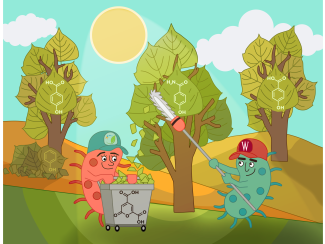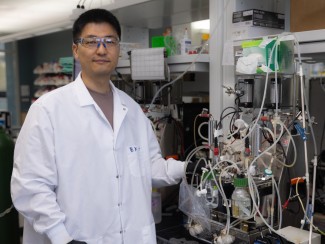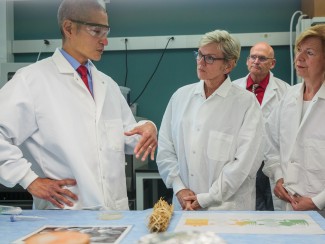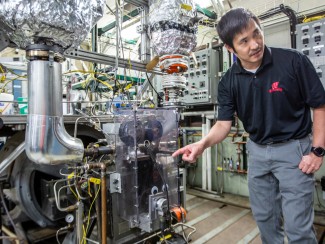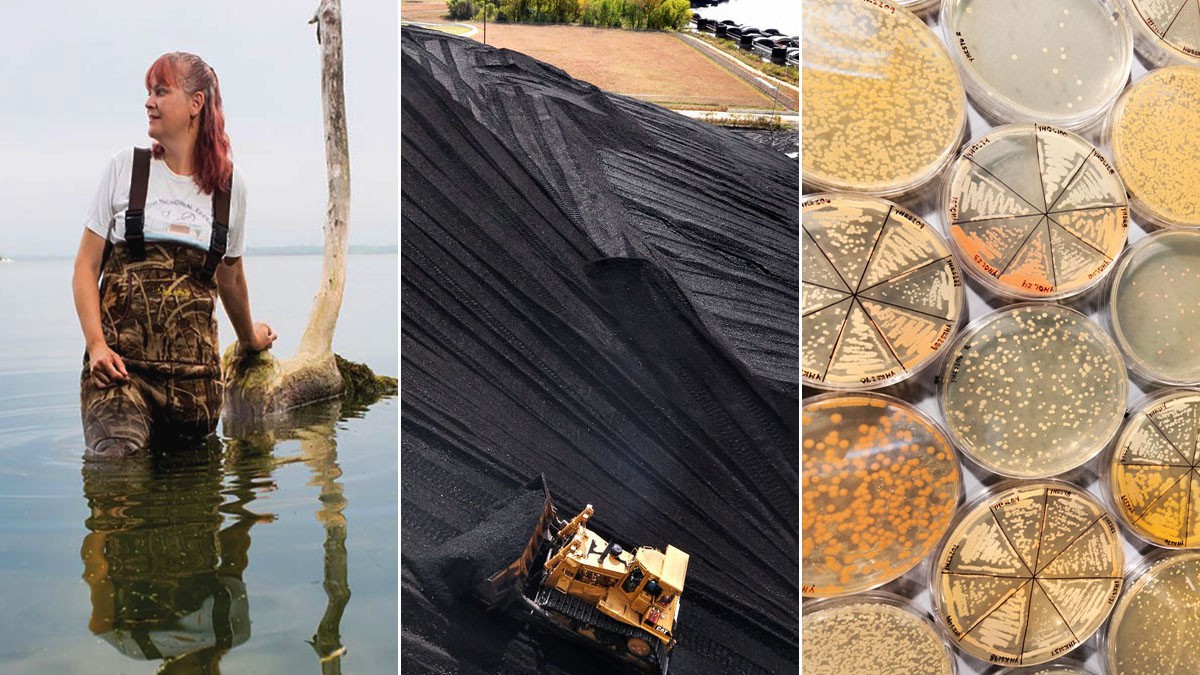
October saw Wisconsin Energy Institute researchers across the University of Wisconsin–Madison campus examining transportation and fuels and the relationship between energy and society through the lens of policy and sustainable agriculture. Below are the highlights of October media coverage.
Agriculture can indeed fix our food system — if we reimagine it

The Washington Post
Bigger changes are underway for sustainable agriculture. Farmers and others in the sustainable food movement pursue a broader vision of change in agriculture. UW–Madison Center for Integrated Agricultural Systems researchers' vision for sustainable agriculture and the food system includes crops and livestock, as well as farmers, processors, distributors and markets, so more consumers can access sustainable food, year-round. What does this look like?
Featured Researchers
Weaning crops from nitrogen fertilizers wins federal grant for UW

Wisconsin State Journal
Plants producing their own nitrogen would require less fertilizer and reduce environmental pollution, and researchers at UW-Madison will be studying it thanks to a grant from a federal agency. This work is longstanding at UW-Madison, said project leader Jean-Michel Ane, professor of bacteriology and agronomy.
Featured Researchers
Proposed rule to boost coal could upend markets, cost Wisconsin consumers

La Crosse Tribune
Industry analysts are warning that Trump administration efforts to support coal and nuclear energy could upend wholesale markets and drive up electricity rates for Wisconsin consumers.
U.S. Secretary of Energy Rick Perry has proposed a new rule that would boost prices for electricity generated at plants with a 90-day supply of fuel on hand — which translates to coal and nuclear generators — in an attempt to slow market trends toward natural gas and renewable sources.
It’s not clear what the impact on retail consumers would be, but industry experts say the rule would put upward pressure on rates, especially in states such as Wisconsin that still rely heavily on coal for fuel.
UW student groups screens films discussing benefits of nuclear power

The Badger Herald
The American Nuclear Society University of Wisconsin Student Section hosted a film screening to kick off Nuclear Science Week at the Wisconsin Energy Institute Monday.
The film argued that nuclear power could be made safely and may be one of the only viable options for a carbon-free power option that can replace fossil fuels.
Salvation through Fermentation

Wisconsin Academy of Sciences Arts & Letters
Producing economically viable biofuels from biomass other than corn, is complicated. Many biofuels researchers, including those at the Great Lakes Bioenergy Research Center (GLBRC), are now focused on making biofuels from low-input crops such as switchgrass and poplar. These dedicated bioenergy crops, no portion of which are used for food, avoid the conflicts that arise from growing food crops to produce fuel.
Although not yet a market force, cellulosic biofuels, or fuels made from grasses and wood, are routinely factored into future climate mitigation scenarios because of their potential to displace petroleum use and mitigate greenhouse gas emissions. Dedicated bioenergy crops can also be grown on non-agricultural land, require less fertilizer than annual crops such as corn, and boost biodiversity. Ultimately, GLBRC researchers hope to find ways of growing sustainable biomass and converting it to biofuels and bio-products that provide cost-competitive alternatives to petroleum-derived fuels and chemicals.
Featured Researchers
Wading through Mendota’s Mysteries

College of Agricultural and Life Sciences
Lake Mendota happens to be the lake with the world’s most amassed microbial data thanks to 18 years of methodical sampling now overseen by Trina McMahon’s lab. This shared focus on Lake Mendota implies a certain kinship of purpose, but it also stokes a friendly intellectual rivalry.
McMahon knows all about Lake Mendota’s fabled scholarship, but she has her critique: those models ignore microbes. The limnologists say that the microbes are always there, in pretty much the same numbers, and they always do pretty much the same thing: turn dead things back into their constituent nutrients and carbon dioxide. Why worry about them?
Featured Researchers
Healthy competition makes habit of sustainability

University of Wisconsin-Madison News
Living sustainably to save the planet is serious stuff, but Madison-based non-profit Cool Choices has made a game of it. And it seems to be working.
According to UW–Madison researchers, the Cool Choices approach — a little friendly competition, some public accountability and a touch of peer pressure — may make energy-saving habits sink in to stay. An analysis with UW–Madison psychology professor Markus Brauer shows lasting reductions in electricity use among hundreds of players, with the biggest gains among the players who started out as the heaviest energy users. Energy expert Dietram Scheufele weighs in as well.
Featured Researchers

